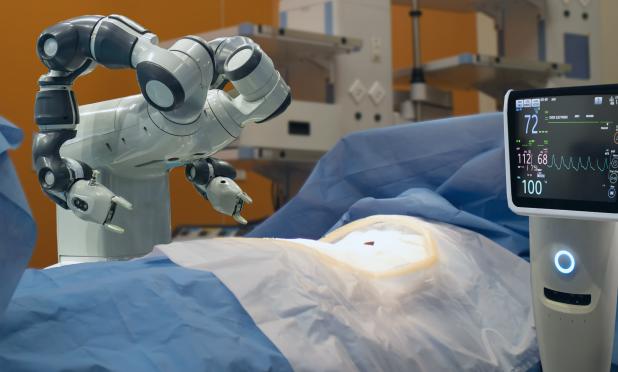
/
SPONSORED
Should AI in healthcare have its own designated manager?
Increasingly, healthcare organizations of all sizes need people with the authority to drive AI applications into clinical settings where they can make a difference to patients while also meeting organizational needs.

/
SPONSORED
Ethics for AI sparks debate among many experts
The key is not to stifle AI development, say providers with ethical concerns, but to ensure that new technologies assist, not replace, the doctors on the front line of healthcare.

/
SPONSORED
Slow but steady comes the rise of healthcare AI
Engendering trust in machine learning is gradual rather than explosive, say stakeholders, and no one is going to risk applying these systems without rigorous testing.

/
SPONSORED
Report: increased risk from hackers accompanies spread of AI
UK tech leaders say outdated computer systems, a lack of investment and a gap in skills and awareness are threatening the health service.

/
SPONSORED
Insurer taps AI provider for help with population health management
According to the Virginia-based health plan, tests of the new program logged a 64 percent success rate in determining if a patient’s costs would rise.

/
SPONSORED
MIT teams up with Mass General to catch breast cancer early
By predicting who will develop cancer in the future, said one participant, providers can hopefully save lives and catch cancer before symptoms ever arise.

/
SPONSORED
Researchers aim AI tool at improving eye surgery
Screening candidates for eye-surgery can be a time-consuming process, the researchers noted, but new AI tools stand to help reduce screening times while also improving overall surgical results.

/
SPONSORED
White House emphasizes AI in updated R & D strategy
The new strategic plan comes just four months after President Trump signed the American AI Initiative, which calls for the federal government to prioritize research and development for artificial intelligence.

/
SPONSORED
Patients willing to use AI and wearables, but concerns linger
While many clinicians, researchers and decision makers are looking to wearables and AI to provide the “magic bullet” to transform healthcare, the report noted, the perspective of patients has often been neglected or forgotten.


